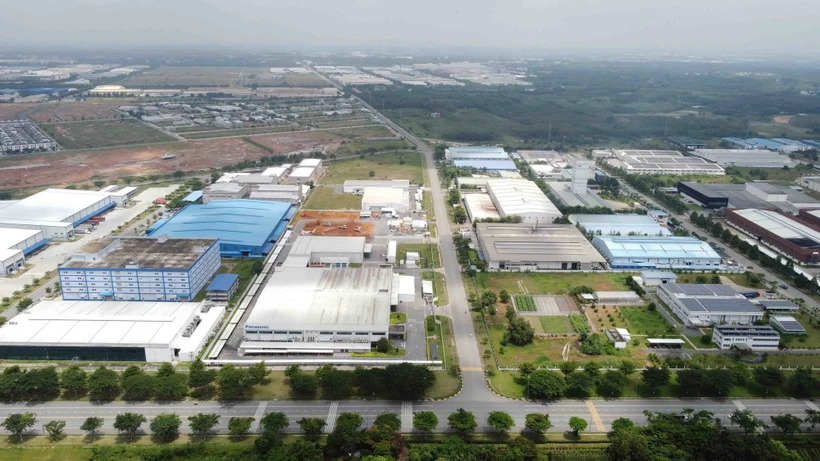HCMC – The southern province of Binh Duong is aiming to draw foreign direct investment (FDI) totaling between US$1.2 billion and US$1.3 billion this year.
Despite economic challenges faced in 2023, the province exhibited resilience as business activities within its industrial parks remained robust, surpassing key performance indicators by more than 70%.
In 2023, domestic investment reached nearly VND5.8 trillion, exceeding the plan by 482%, while FDI amounted to US$1.22 billion, meeting 100% of the target.
Looking ahead to 2024, the management board of Binh Duong’s industrial parks has set ambitious goals. They aim to attract 130 to 140 investment projects, with FDI targeted at US$1.2-1.3 billion and domestic investment totaling VND1.1-1.2 trillion.
Additionally, infrastructure investment is set at VND5.7 trillion, with plans to lease and sub-lease land spanning 100-150 hectares and recruit 15,000 laborers. Revenue is projected to range between US$35 billion and US$40 billion.
In the first quarter of this year, the province has already attracted US$177 million in FDI, a whopping 385% increase compared to the same period last year.
Currently, there are 3,112 active projects in the province’s industrial parks, including 2,433 foreign-invested projects with total registered capital of US$29.5 billion and 679 domestic projects with registered capital exceeding VND94 trillion.
With 33 approved industrial parks covering a total area of 14,790 hectares, Binh Duong boasts a substantial industrial footprint. Of these, 28 industrial parks, spanning 11,962 hectares, are already operational.
By the end of 2025, Binh Duong plans to establish two new industrial parks, with a combined land area of around 1,000 hectares. These include a mechanical engineering-focused industrial park spanning 800 hectares, aiming to attract high-tech mechanical industries, and a wood industry-focused Tan Lap I Industrial Park covering 200 hectares.
By the end of 2030, the province aims to roll out eight more industrial parks across the districts of Bac Tan Uyen, Dau Tieng, and Phu Giao to foster synchronized industrial development, covering a planned new area of over 6,000 hectares along Beltway No. 4.









